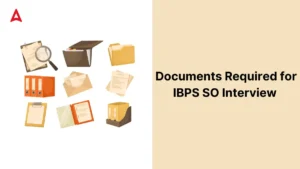Hello, Greetings!!
In IBPS and Other bank exams, English Section plays an extremely important role in your Success . And more than 50% questions are based on grammar directly or its applications.
We’ve decided to help you with Grammar. We’ll cover all the important Grammar rules and tricky scenarios in the form of “STUDY NOTES on GRAMMAR”. Today in this post we’ll introduce ADVERBS: ALL TRICKY SCENARIOS.
ADVERB
“An adverb is a word which modifies the meaning of verb, an adjective or another adverb.”
☞Rule-1 Adverb of manner are mostly formed from adjective by adding (ly)
Ex.- (Clever -Cleverly),
(Wise -Wisely),
(Kind – Kindly),
(Foolish – Foolishly)
☞Rule-2 When the adjective ends in (y) preceded by a consonant, change (y) into (i) and add (ly)
Ex.- Happy – Happily
Ready – Readily
Heavy – Heavily
☞Rule-3 Adverb of manner are generally placed after the verb or after the object if there is one.
Ex.- It is raining heavily.
He is walking slowly.
Ram speaks English well.
He does his work carefully.
☞Rule-4 Adverbs of frequency are normally placed before the main verb and after the auxiliary (is, am, are, was, were, had, have, will, shall etc.)
Adverb of frequency (always, never, often, rarely, usually, generally, sometimes, almost, already, hardly, nearly, just, quite, occasionally)
Ex.- He always comes late.
He is always late.
He often visits the U.S.
His brother never takes alcohol
He is never punctual.
☞Rule-5 The auxiliaries ‘have to’ and ‘used to’ prefer the adverb before them.
Ex.- I often have to go to college by walk.
He never used to agree with me.
☞Rule-6 Adverb ‘ENOUGH’ is always placed after the word which it qualifies.
Ex.- Is the hall big enough ?
He spoke loud enough to be heard.
She is wise enough to understand your intention.
He had enough money to buy this car. (Correct)
(Noun)
He is faster enough to defeat you. [use fast]
He is bravest enough to be selected for the post of soldier [use brave]
☞Rule-7 ‘Seldom or Never’ and ‘Seldom if ever’ are both correct but ‘Seldom or ever’ is incorrect.
Ex.- We seldom or ever visit Delhi. (Incorrect)
We Seldom or never visit Delhi. (Correct)
☞Rule-8 ‘Else’ should be followed by ‘but’
Ex.- It is nothing else than pride. (Incorrect)
It is nothing else but pride. (Correct)
Rohit has no one else to talk to except his wife. (Incorrect)
Rohit has no one else to talk to but his wife. (Correct)
☞Rule-9 The use of ‘NEVER’ for ‘NOT’ is Incorrect
Ex.- I never broke your windopanes. (Incorrect)
I did not break your windowpanes. (Correct)
☞Rule-10 Adverbs [Seldom, nowhere, never, nothing, hardly, scarcely, neither, barely, rarely] are not used with other negative words.
Ex.- I rarely went to meet nobody. (Incorrect)
[Use ‘anybody’ in place of ‘Nobody’]
I rarely went to meet anybody. (Correct)
She hardly knows nothing about me. (Incorrect)
She hardly knows anything about me. (Correct)
☞Rule-11 Adverb ‘AS’ is used with the following verbs
[Regard, Describe, define, treat, view, know]
Ex.- I regard him as my brother.
Biology had been defined as the study of organism.
Adverb ‘AS’ is not used with the following verbs-
[Name, elect, think, consider, call, appoint, make, choose]
☞Rule-12 ‘SO’ as an adverb of degree must not be used without a correlative.
Ex.- He is so weak. (incorrect)
He is very weak (Correct)
It was so lovely.(InCorrect)
It was very lovely. (Correct)
He is so weak that he cannot walk. (Correct)
☞Rule-13 The adverb ‘too’ means ‘more than enough’ and should not be used instead of ‘every’ or ‘much’
The news is too good to be true.
He is too weak to walk.
☞Rule-14 ‘Rather’ is used as comparative adverb for the sake of emphasis.
Ex.- We should think of living rather or dying.
[This sentence is correct because there is comparison between living and dying]
You are rather very clever. (Incorrect)
You are very clever. (Correct)
☞Rule-15 In order to make our meaning clear, an adverb must be placed as near as possible to the word it modifies
Ex.- She has only three dollars with her.
(Adv.) (Adj.)
We only have four hours to finish this paper. (Wrong)
We have only four hour to finish this paper (Right)
That building nearly costs sixty thousand rupees. (Wrong)
That building costs nearly sixty thousand rupees.(Right)
She just wants to take one class. (Wrong)
[Not anything else]
She wants to take just one class.(Right)
[Not even second]
☞Rule-16 When an adverb modifies an intransitive verb, it usually follow it.
Ex.- She sang melodiously.
She writes neatly
The birds fly swiftly
☞Rule-17 When a verb consists of an auxiliary and a main verb, the adverb which qualifies is placed between the auxiliary and the main verb.
Ex.- I have told him often not to come late. (Wrong)
I have often told him not to come late. (Right)
☞Rule-18 When an adverb modifies an adjective or another adverb, the adverb usually comes before it.
Ex.- The cuckoo sings quits sweetly.
Do not speak so fast.
☞Rule-19 Use of hard, hardly, scarce, scarcely
Hard – as an adverb means ‘Diligently’. It usually follows the verb.
Ex.- He works hard to make both ends meet.
Our team played hard in Pakistan.
I tried hard to succeed.
Hardly – When used as an adverb means scarcely, barely. It conveys a negative meaning.
Hardly (Scarcely) had he reached the station, when the train left.
[Hardly and scarcely are followed by when]
[No sooner is followed by than]
Scarce – as an adjective means ‘not plentiful, hard to find, not often found.
Ex.- Coal has become scarce in England.
Scarcely – as an adverb is almost synonymous ‘Hardly’
I can scarcely hear you.
They have scarcely enough to look after their children
☞Rule-20 Use of MUCH, VERY
‘Much’ qualifies adjectives or adverbs in the comparative degree; ‘very’ in the positive.
Ex.- The air is much hotter today than yesterday.
This book is much heavier than that.
This book is very useful
He spoke very loudly.



 Daily Current Affairs Quiz 2025 18 Decem...
Daily Current Affairs Quiz 2025 18 Decem...
 Documents Required for IBPS SO Interview...
Documents Required for IBPS SO Interview...
 Bank of India Credit Officer Cut Off 202...
Bank of India Credit Officer Cut Off 202...








